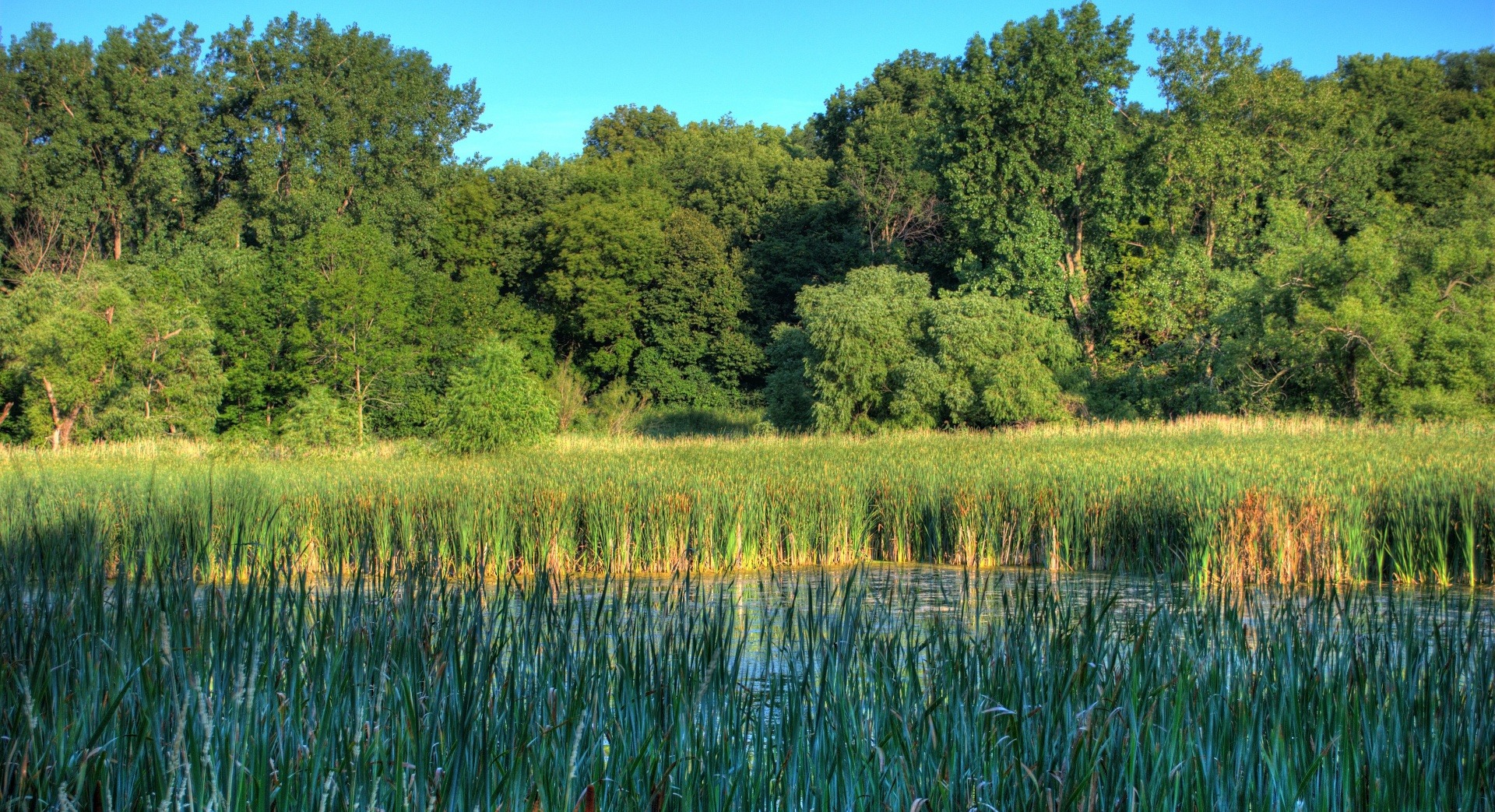What can natural wetlands teach us about designing nature-based solutions?
01/02/2024

In light of World Wetlands Day, it is only fitting to talk about how learning about the innate ability of natural wetlands to improve water quality and deliver multiple benefits has resulted in the design of treatment wetlands, and how that is evolving into making them a nature-based solution for water management.
Natural wetlands can improve water as it passes through the system, with a combination of chemical, physical and biological processes. With treatment wetlands, we create one of these ecosystems specifically to deal with water pollution as their main design goal. But unlike traditional engineering that relies on concrete pouring and external electricity inputs, treatment wetlands harness these natural processes to also deliver biodiversity, mental wellbeing, education, and water regulation benefits – all with the same system!
Treatment wetlands are designed so we can predict how much we will improve the water quality by using them. They rely on a combination of plants, microorganisms, and the supporting soils or media (e.g., gravel, sand) where good bacteria (“microorganisms”) will grow using pollutants as their fuel. Each of these wetland components contributes to the removal of pollutants from water. Plants can directly take up nutrients, whilst bacteria can use a variety of pollutants for their growth – organics, nitrogen, phosphorous, and metals. The growing media helps with physical processes, where solids that are in the water will be filtered out. The interactions between biological components and abiotic components can result in chemical removal processes, where conditions within the wetland force pollutants to change from dissolved to a solid, so we can remove it with physical processes. Think opening a bottle of wine and letting it breathe before you try it – that’s a chemical process. Similarly, we can design wetlands to introduce air into the water or sediments and thus treat some of the pollutants, passively.
There is global experience designing and implementing treatment wetlands, and particular expertise on this at Cranfield University. We have worked with water utilities, consultancies, NGOS, and regulators to understand how these ecosystems work, how we can improve them, and how we can better support their rollout in the UK. We are currently doing work on phosphorus removal and provision of multiple benefits including carbon sequestration, engineering wetlands so they are a carbon sink, and developing new flowsheets for sewage treatment applications. As part of the latter, we are supporting Scottish Water build a full-scale demonstrator wetlands-based flowsheet for upgrading septic tank treatment works. Also, we are currently exploring co-production of treatment wetlands with the Royal Horticultural Society to deliver treatment, biodiversity and mental wellbeing benefits.
We also develop and deliver bespoke training courses on wetland design, research and implementation, and include them as one of the key interventions professional development delegates can learn about in our pioneering online course on Nature-based solutions or “NbS”. The online NbS course covers site-specific interventions like treatment wetlands, green walls, and green roofs as well as catchment-based approaches to better management of land and water resources. It has run four times since 2020, attracting over 230 delegates from around the world. This is a multidisciplinary course, with a strong focus on understanding the diversity of solutions that fit within the NbS umbrella and how we can support their implementation and delivery of multiple benefits. Our delegates come from different sectors, and have said on exiting:
“This course is the perfect mix of theory and practice. The fundamentals taught on this course will help guide practitioners, researchers, and policymakers through the basics of NbS implementation. The deep-dive components will provide participants with the knowledge to implement NbS projects at scale. A wonderful course for those starting out in NbS and those looking for more practical approaches to designing and implementing NbS.” – Gregg Brill, Pacific Institute
“The course gave me the knowledge, overview, and insight in the area to develop into a subject matter expert in NbS at my utility and contribute to delivering NbS at scale. It’s not an understatement to say that this course enabled my career to progress in a new and exciting direction” Matthew Palmer, Severn Trent.
As part of our work on understanding, providing training and disseminating the technology, Dr Gaby Dotro recently co-authored an open access textbook on treatment wetlands that has been translated into three languages, making the information accessible to anyone with an interest in the technology anywhere in the world. To learn more about our wetlands or NbS work, drop Gaby an email: g.c.dotro@cranfield.ac.uk
Happy World Wetlands Day!
Categories & Tags:
Leave a comment on this post:
You might also like…
Company codes – CUSIP, SEDOL, ISIN…. What do they mean and how can you use them in our Library resources?
As you use our many finance resources, you will probably notice unique company identifiers which may be codes or symbols. It is worth spending some time getting to know what these are and which resources ...
Supporting careers in defence through specialist education
As a materials engineer by background, I have always been drawn to fields where technical expertise directly shapes real‑world outcomes. Few sectors exemplify this better than defence. Engineering careers in defence sit at the ...
What being a woman in STEM means to me
STEM is both a way of thinking and a practical toolkit. It sharpens reasoning and equips us to turn ideas into solutions with measurable impact. For me, STEM has never been only about acquiring ...
A woman’s experience in environmental science within defence
When I stepped into the gates of the Defence Academy it was the 30th September 2019. I did not know at the time that this would be the beginning of a long journey as ...
Working on your group project? We can help!
When undertaking a group project, typically you'll need to investigate a topic, decide on a methodology for your investigation, gather and collate information and data, share your findings with each other, and then formally report ...
From passion to purpose: My journey at the Pinnacle of Aviation
By: Sultana Yassin Abdi MSc Air Transport Management, Current Student Born and raised in the vibrant landscape of the UAE, with roots stretching back to Somalia, my life has always been ...







